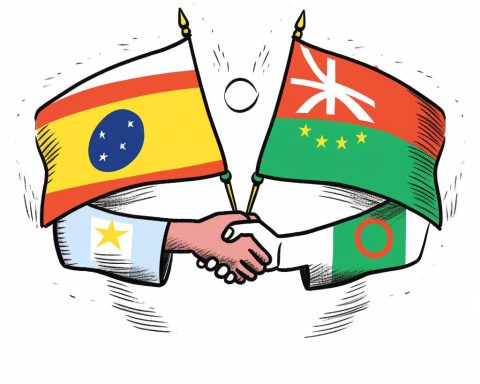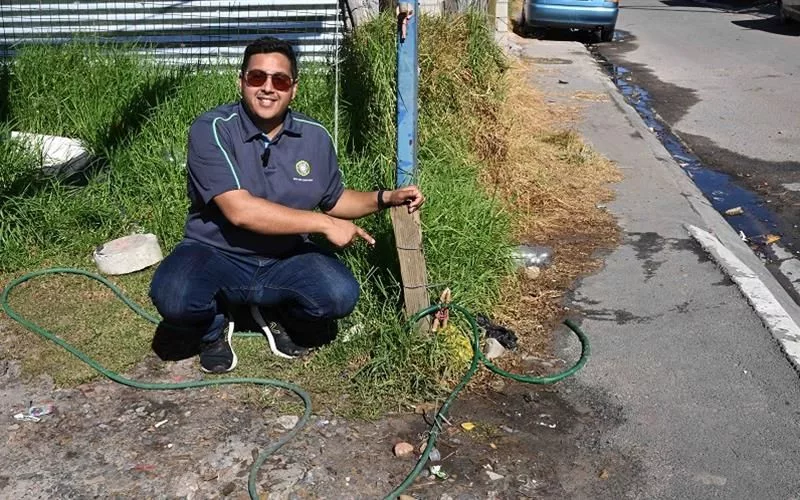A comprehensive study by South African Minister Thulas Nxesi reveals that the current labor rights situation in the Occupied Palestinian Territories is dire. 66% of jobs have disappeared in Gaza since the commencement of hostilities, affecting the lives of approximately 192,000 Palestinians. Out of the 171,000 workers from the West Bank who were previously employed in Israel, only 10,000 currently have their jobs, with concerns of displacement. Nxesi urges ILO member states to confront these injustices and hold Israel accountable for its actions, while also advocating for prompt and effective actions to provide much-needed basic services and humanitarian aid to the Palestinians in Gaza.
What is the current labor rights situation in the Occupied Palestinian Territories?
According to a comprehensive study by South African Minister Thulas Nxesi, 66% of jobs have disappeared in Gaza since the commencement of hostilities, affecting the lives of approximately 192,000 Palestinians. The assessment also reveals that out of the 171,000 workers from the West Bank who were previously employed in Israel, only 10,000 currently have their jobs, with concerns of displacement. Nxesi urges ILO member states to confront these injustices and hold Israel accountable for its actions.
A Cry for Justice
The worldwide community is becoming progressively worried about the intensifying human rights catastrophe in the Occupied Palestinian Territories. South Africa, a country with a profound history of combating subjugation, has voiced its concern over this escalating issue. Thulas Nxesi, the South African Minister, is tasked with analyzing the aftermath of this crisis in the Palestinian territories, with special emphasis on labor rights and job opportunities.
Nxesi’s evaluation of the International Labour Organization’s (ILO) endeavors in Palestine reveals a bleak scenario regarding the socio-economic conditions in the area. Notably, the assessment reveals that an astonishing 66% of jobs have disappeared in Gaza since the commencement of hostilities, affecting the lives of approximately 192,000 Palestinians. This loss also extends to the 20,000 Gazans who previously worked in Israel but are now without employment.
The consequences of such massive job losses are far-reaching. It results in the upheaval of the economy, disruption of livelihoods, and induces unbearable levels of stress and worry for the impacted families. The predicament, Nxesi emphasizes, transcends an economic crisis and becomes an existential one, with continuous breaches of essential human and labor rights.
The Exploitation of Workforce
The South African delegation conveyed intense apprehension regarding Israel’s employment strategies, accusing them of manipulating bilateral labor agreements to their advantage. The apprehension stems from the suspicion that these agreements aim not just to substitute Palestinian workers but to completely displace them. The assessment observes that out of the 171,000 workers from the West Bank who were previously employed in Israel, only 10,000 currently have their jobs.
The predicament is exacerbated by the indifference and inertia of certain ILO member states. Their implicit endorsement of these practices threatens to sustain the hardship in Gaza. Nxesi implores these states and organizations to confront these injustices by revaluating their bilateral labor agreements and holding Israel accountable for its actions.
Nxesi also urges the ILO to utilize its mandate and penalize Israel for its alleged infringement of several ILO conventions. He asserts that there are ample legal bases to initiate action against Israel under Article 26 of the ILO Constitution and other international human rights treaties.
Advocacy for Action
Amid such critical circumstances, the South African Minister appeals to the Workers’ Group and Employers’ Group of the ILO to shatter their silence and actively address the predicament of Palestinian workers and enterprises. Nxesi argues that advocating for social justice is a pivotal component of the tripartite model of labor negotiation championed by the ILO.
The evaluation further highlights the atrocities inflicted upon innocent lives and livelihoods in Gaza and the Occupied Palestinian Territories. The provisional measures issued by the International Court of Justice (ICJ) are cited as proof of the immediate need for international intervention.
In 2024, the ICJ directed Israel to restrain its military forces from committing genocide-related acts, implement measures to prevent and penalize incitement to genocide, and ensure timely delivery of humanitarian aid to Gaza. Regrettably, Israel has continued to disregard these directives, an indifference that South Africa has stridently censured.
Call for Solidarity
Nxesi advocates for prompt and effective actions to provide much-needed basic services and humanitarian aid to the Palestinians in Gaza. He encourages ILO member states to reverse their decisions to withdraw funding from humanitarian work by some UN agencies in the region and urges those with influence over Israel to uphold their duties under international law.
The South African Minister commends the Principals of the Inter-Agency Standing Committee who declared on 30 January 2024 that the world cannot forsake the 2.2 million people residing in Gaza. This sentiment resonates in Nxesi’s evaluation, which underlines the collective responsibility of ILO constituents to voice their opposition to the ongoing genocide.
The evaluation serves as a stark reminder of the human toll of conflict and underscores the role of international organizations and governments in mitigating such crises. As the world wrestles with these unsettling realities, the words of Nelson Mandela, quoted in Nxesi’s evaluation, reverberate powerfully. They serve as a reminder of the strength of solidarity and the communal duty to denounce all forms of oppression and injustice.
What are the consequences of the massive job losses in the Occupied Palestinian Territories?
The consequences of the massive job losses are far-reaching, disrupting the economy, livelihoods, and inducing unbearable levels of stress and worry for the impacted families. The predicament is an existential one as it involves continuous breaches of essential human and labor rights.
What is the South African delegation’s concern regarding Israel’s employment strategies?
The South African delegation is concerned that Israel is manipulating bilateral labor agreements to their advantage, not just to substitute Palestinian workers but to completely displace them. The assessment observes that out of the 171,000 workers from the West Bank who were previously employed in Israel, only 10,000 currently have their jobs.
What legal bases does Nxesi assert to initiate action against Israel under ILO conventions?
Nxesi asserts that there are ample legal bases to initiate action against Israel under Article 26 of the ILO Constitution and other international human rights treaties.
What is Nxesi’s call to action for ILO member states?
Nxesi urges ILO member states to confront the injustices in the Occupied Palestinian Territories by reevaluating their bilateral labor agreements and holding Israel accountable for its actions. He also encourages member states to reverse their decisions to withdraw funding from humanitarian work by some UN agencies in the region and urges those with influence over Israel to uphold their duties under international law.
What is the role of international organizations and governments in mitigating crises like this?
The evaluation serves as a stark reminder of the human toll of conflict and underscores the role of international organizations and governments in mitigating such crises. As the world wrestles with these unsettling realities, the words of Nelson Mandela, quoted in Nxesi’s evaluation, reverberate powerfully. They serve as a reminder of the strength of solidarity and the communal duty to denounce all forms of oppression and injustice.
What did the International Court of Justice (ICJ) direct Israel to do in 2024 regarding the Occupied Palestinian Territories?
In 2024, the ICJ directed Israel to restrain its military forces from committing genocide-related acts, implement measures to prevent and penalize incitement to genocide, and ensure timely delivery of humanitarian aid to Gaza. However, Israel has continued to disregard these directives, an indifference that South Africa has stridently censured.









